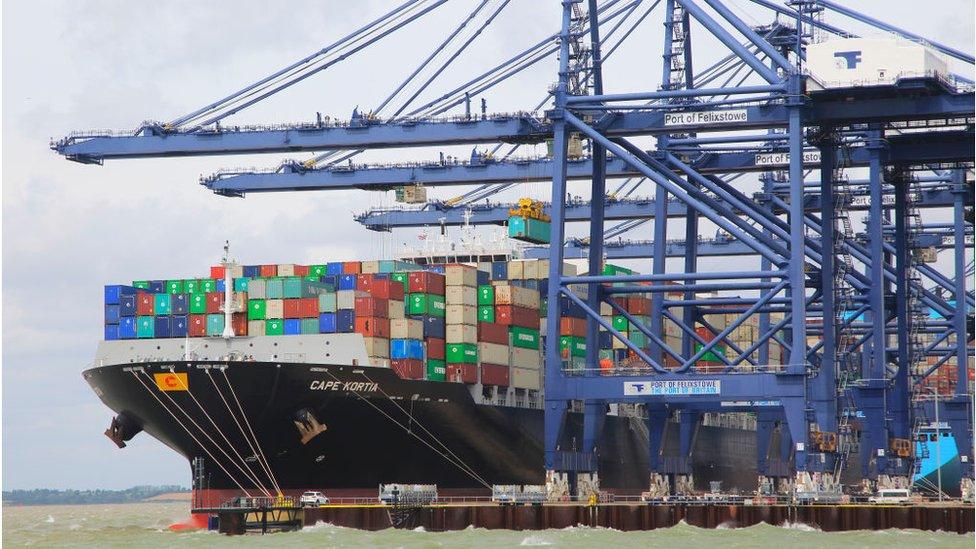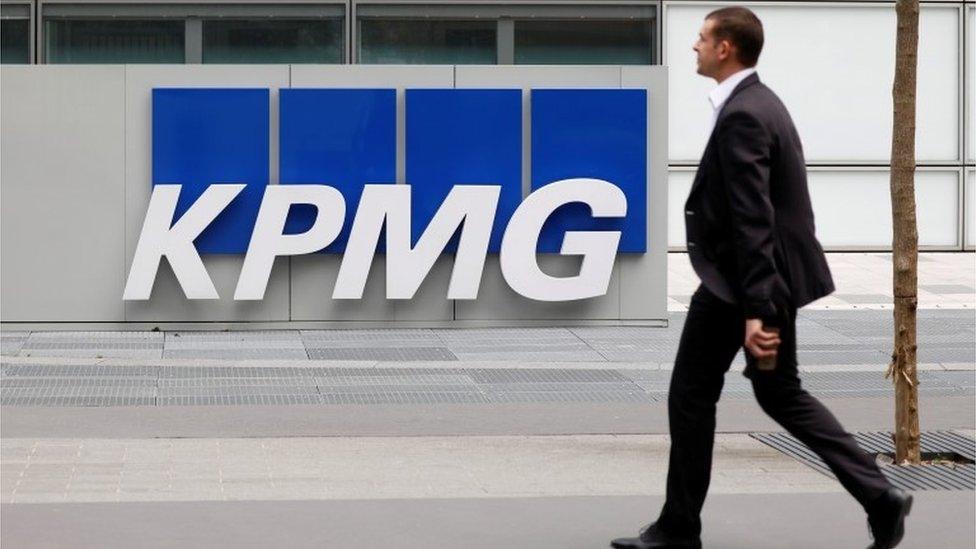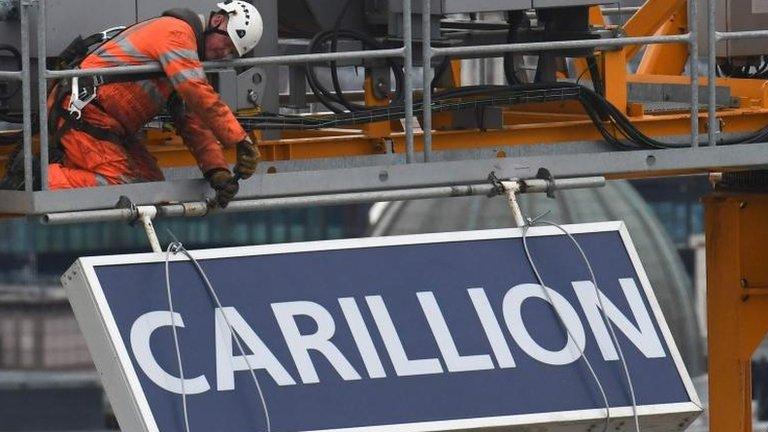Firms 'must be clearer' about Brexit risks, watchdog says
- Published

Listed companies must be clearer about the potential impact of Brexit on their businesses when reporting their financial results, a watchdog has said.
The Financial Reporting Council (FRC) said firms needed to differentiate between specific and general Brexit threats to protect investors.
The FRC said firms in general needed to be more transparent in reports.
It has faced calls to act since the fall of construction firm Carillion, whose problems were missed by auditors.
Paul George, executive director of corporate governance and reporting at the FRC, told the BBC: "What we are trying to mitigate against is sudden shocks - so what we hope is that companies who have some specific challenges to their business models as a result of leaving the EU are able to forewarn shareholders about the risks.
"Investors do not want to be surprised by not being aware of sensitivities to the future prospect of the business and if there is likely to be substantive changes to the business model."
Britain and the EU have said they want a divorce settlement and transition deal in place by March 2019, but companies are being urged to have contingency plans in case of a no-deal Brexit.
In an open letter to businesses, external, the FRC said companies needed to "clearly identify" threats to shareholders such as:
Changes to import and export taxes linked to quitting the EU
Potential delays to supply chains
It also called on management to describe actions being taken "to manage the potential impact" of Brexit.
The FRC called for better transparency in reporting more generally, warning that trust in big business was at stake.
It said it had seen an increase in basic errors in published accounts and called on companies to strengthen internal processes.
It also called for better explanations of "best guess" estimates, and criticised the use of "alternative performance measures" that flatter a company's performance.
It said the number of times it had asked companies to be more transparent had gone from three last year to 15 in 2018.
'Reactive mindset'
The FRC is under pressure to get tougher with firms since auditors failed to spot Carillion's financial problems before it went bust in January.
The watchdog sharply criticised the conduct of one of Carillion's auditors, KMPG, and has opened an investigation into the group, external.
But in May, the work and pensions and business select committees criticised the FRC itself, saying it had "a passive, reactive mindset" when it came to holding companies to account.
A joint report claimed the watchdog did not seek "to influence corporate decision-making with the realistic threat of intervention". It also called for a "change of culture and outlook" at the organisation.
- Published18 June 2018

- Published19 March 2018
